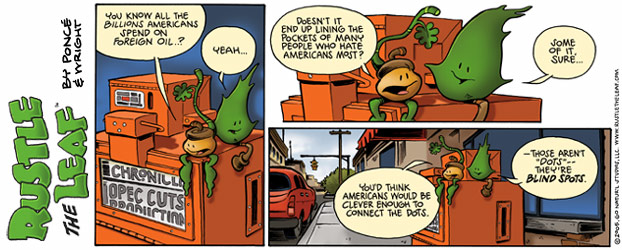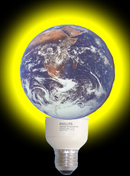In the latest installment of City Hippy interviews, we spoke with Debra Lynn Dadd,
The New York Times 'Queen of Green', a pioneering advocate for the consumer and for the planet. Located in the U.S., she is the author of
Home Safe Home, which is described by the Library Journal as "is the ultimate reference of its kind, written by the leading authority on eliminating toxics in the home."
Debra's website,
www.dld123.com, contains a plethora of information for the health and environmentally conscious consumer, including Debra's List, which includes more than 1,000 websites for nontoxic, natural, and earth wise products. There's also some great information for people suffering from Multiple Chemical Sensitivities (MCS). We think this is one of the best clearinghouses of information about environmentally friendly products and resources that we've seen!
City Hippy: Debra, thanks for agreeing to speak with us. Can you start by telling us how long you've been involved in "being green?"
Debra: I've been involved in being green since before it was called green. Since 1980.
City Hippy: Wow…1980. You must have felt very alone. What inspired you to get involved?
Debra: I started with an interest in toxic exposures because I became chemically sensitive. I was the first one to identify toxic exposures in the home and write about them for consumers in a small book I self-published in 1982. Tarcher published an expanded version in 1984, and now the fourth major revision of the original book has been published. It's now over 400 pages long and the resource guide has been moved online as Debra's List.
In 1987 I had a major epiphany. Once I removed all the toxic chemicals from my home, I was able to see that I also lived "out in the world," and I could see for the first time that my responsibility extended beyond the environment of my home to the environment of the whole earth.
I believe health and the environment go hand in hand. Our bodies are intertwined into the larger ecosystems of the planet, so to be healthy individually, we also need to create health globally. That goes for social health as well--we can't create health and happiness in our own lives if we seek to benefit ourselves by exploiting others.
City Hippy: That's a great philosophy, and it sounds very similar to ours. In practice what do you think has been your biggest success to date?
Debra: I'm really aware of how much my writing has contributed to the whole expansion of the availability of nontoxic products in particular, and also products with other environmental benefits. When I started in 1980, there were few products to recommend. Now there are so many products it requires a website, and I really need a staff to
evaluate and catalog everything that's available.
City Hippy: Being busier sounds like a sign of credibility to us. We have noticed lots of positive changes to your website recently and presumably the web is a big part of all our futures but overall what is your overall vision for the future?
Debra:At the very least, my vision is for everyone to use green products. But more importantly, there should be a global change in how we view ourselves as participants in life. We live in a world today where the predominant viewpoint is that we are consumers living in an industrial system. All attention is focused on attainment of not only real physical needs, but also perceived physical needs that are created by advertising and too much attention on making money.
In my vision, people of the world would understand that beyond the world of industry, we are participants in the world of nature. Our survival depends not on business or industry or economic systems, but on clean air and water and fertile soil, on trees and flowers, on food and butterflies, and all the systems that support the whole wonderful world of life.
There are also many more important things beyond our physical survival! Long ago I gave up pursuing the material and began to focus more on the ethical, the spiritual, the creative, the loving. The external world changes when we change our internal world. We have all the technology we need to live in an entirely green world, but people need to have a self-determined motivation to actually apply it – in other words, the desire to sustain life needs to supersede the need to hold on to the culture as it is. It sounds like a big shift, but I believe it can and must be done.
City Hippy: That's a beautiful vision, and we share it with you! But you're right that it sounds like a big shift. How do you think we can actually get there?
Debra: We can start with a lot more awareness of who we are as human beings – awareness of our essential spiritual nature, the source of our ethical and loving motivations, and awareness of physical nature as a species living within the ecosystems of the Earth. When we know who we are and that we have the inherent ability to create our world, we will act rightly.
City Hippy: Sounds spot on us to us but what do you think is the biggest obstacle we face to realising this vision?
Debra: I think it's fear of facing the truth about how much destruction each one of us is causing in the world. And also the general message of the environmental movement that "good nature" needs to be separated from "bad humans." In fact, humans are essentially good. All other species live together in harmony in ways that sustain
life. We can do that, too.
City Hippy's final thought:Debra's vision of the future is inspiring. While it may seem difficult to attain, each of us can move closer to it by vowing to tread a little more lightly on the earth every day – by investing in green products, taking more time to connect with nature, and sharing our experiences and thoughts with others. Small steps can eventually lead to big change.
Technorati tags:cityhippyshoppinghomechemicalsafetygreenecoenvironment
































